The Best of Muhammad Ali
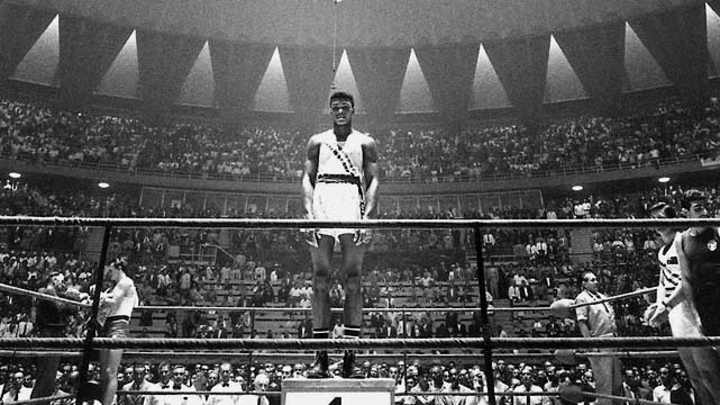
The Best of Muhammad Ali

Eighteen-year-old Cassius Clay was all the rage in Italy after winning the gold medal in the light heavyweight division at the 1960 Summer Olympics in Rome. He would go on to enjoy a successful pro career, retiring in 1981 with a 56-5 record, with 37 knockouts.
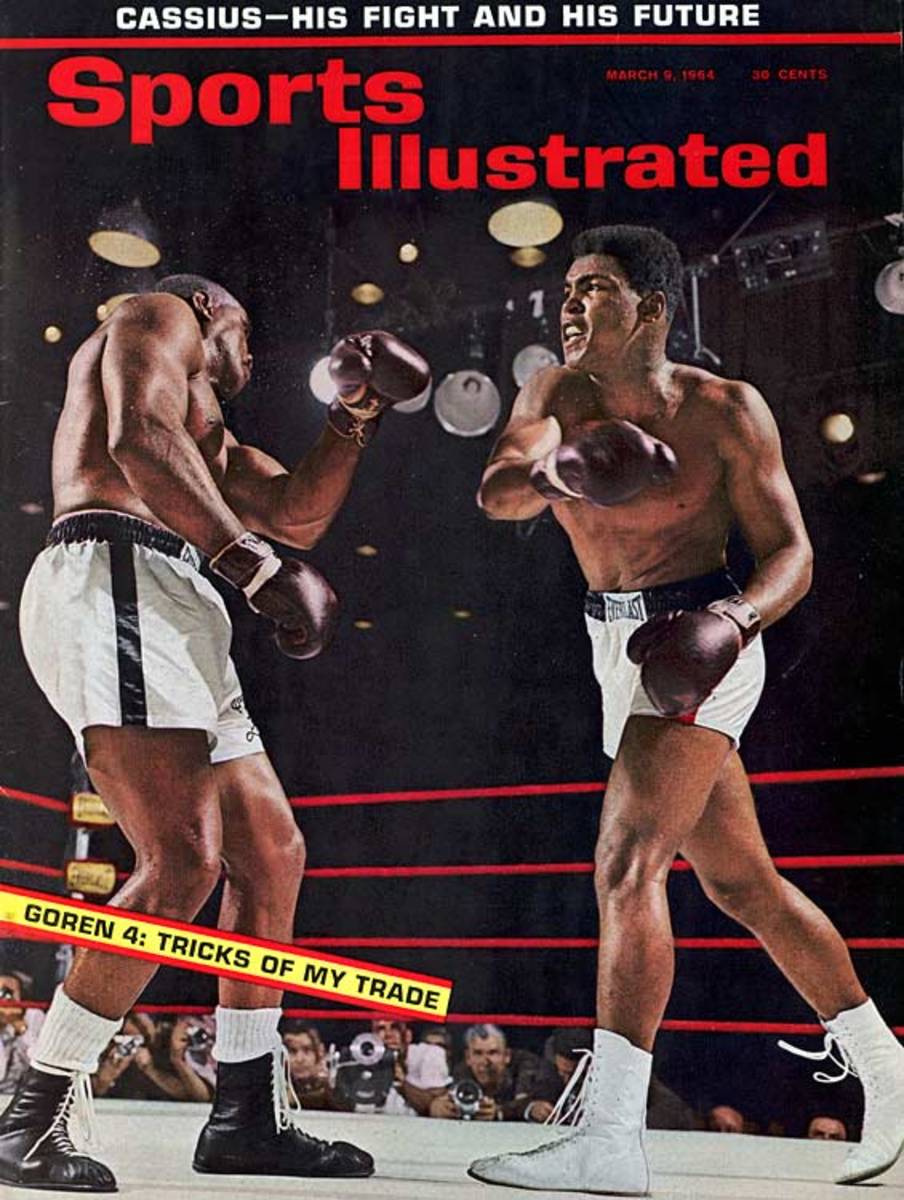
Four years after winning a gold medal in Rome, Clay won the heavyweight title for the first time by overpowering Sonny Liston during a seventh-round TKO in Miami.
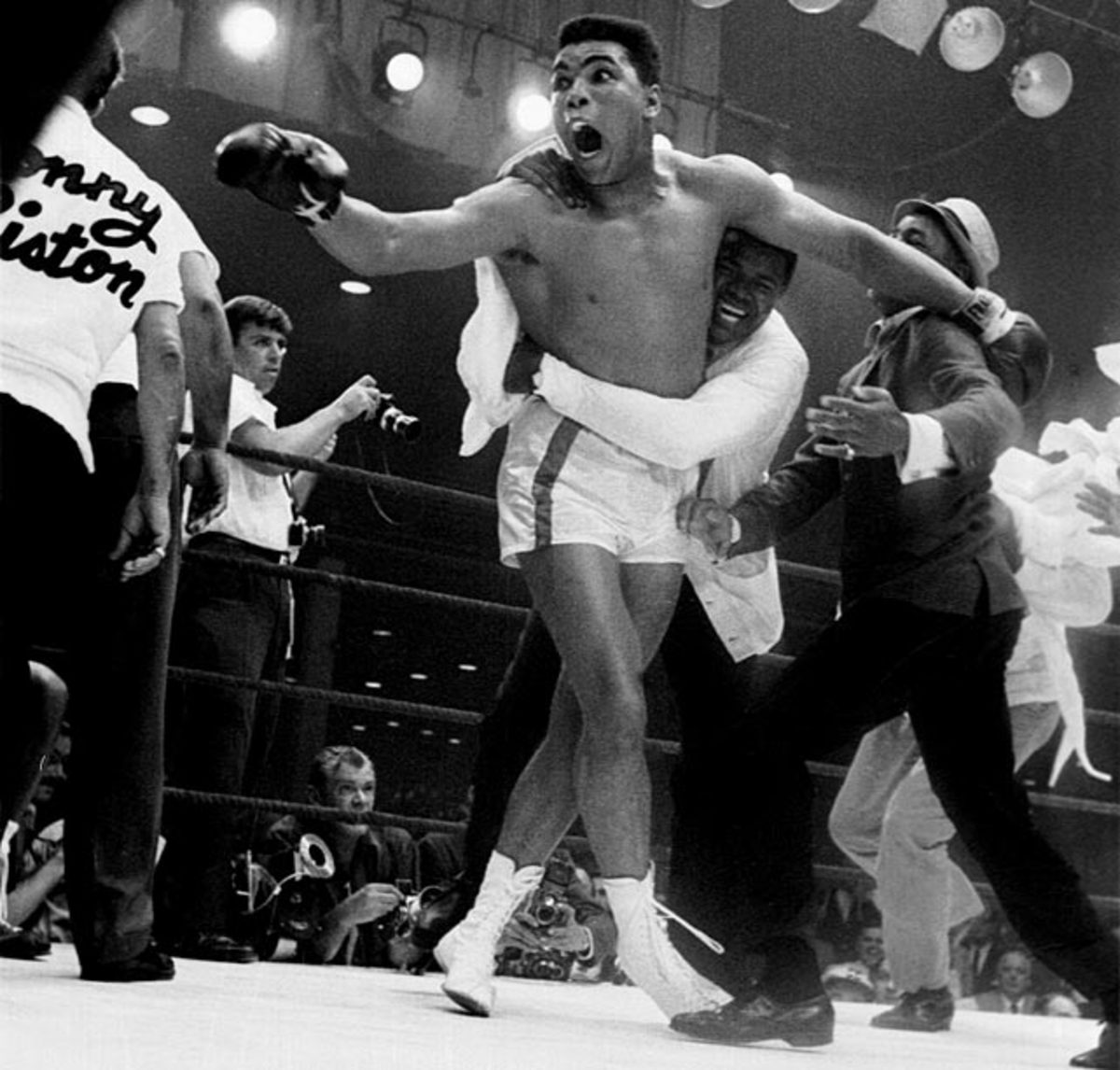
Shortly after celebrating his upset win over Liston, the new "King of the World" announced that he had become a Muslim and was changing his name from Cassius Clay to Muhammad Ali.
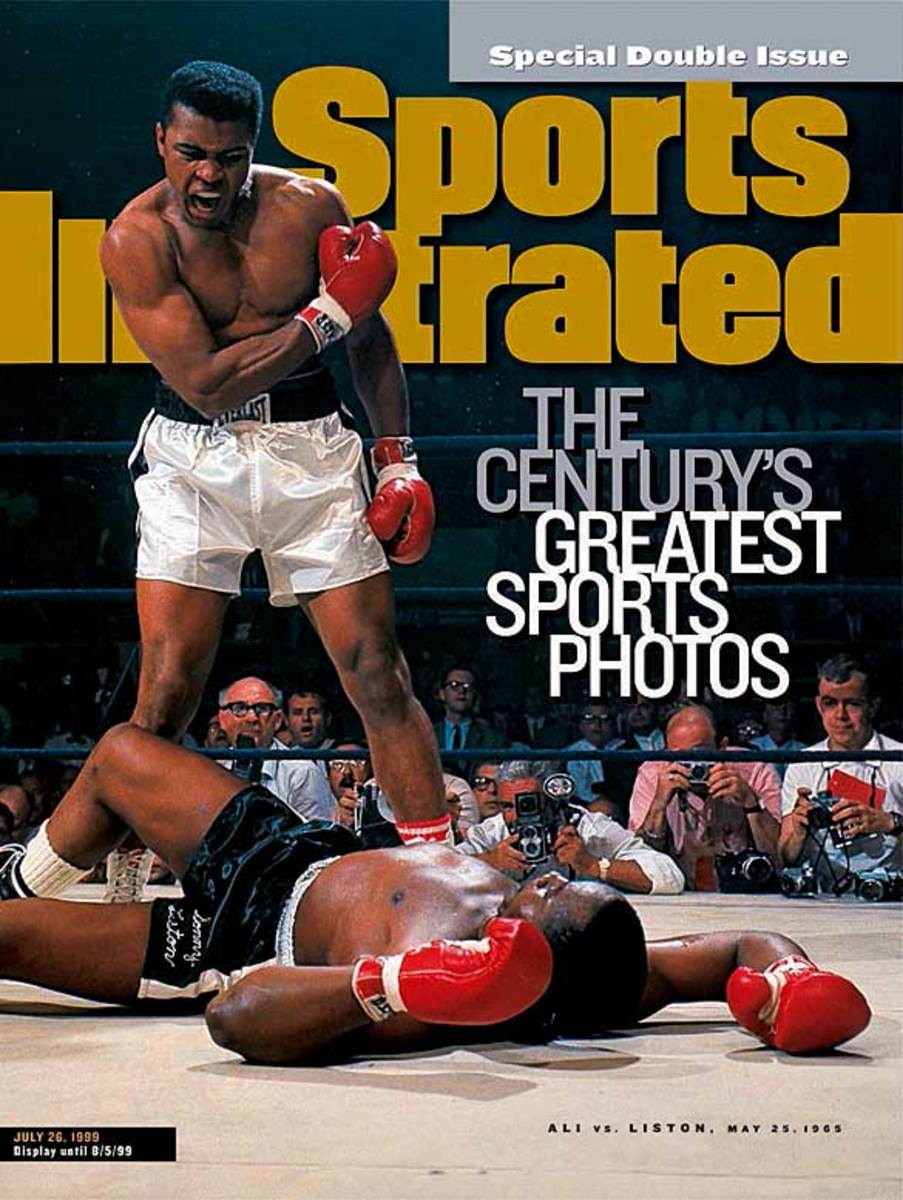
In his rematch with Liston in 1965, Ali made quick work of the challenger, dropping him with a short right one minute into the first round.
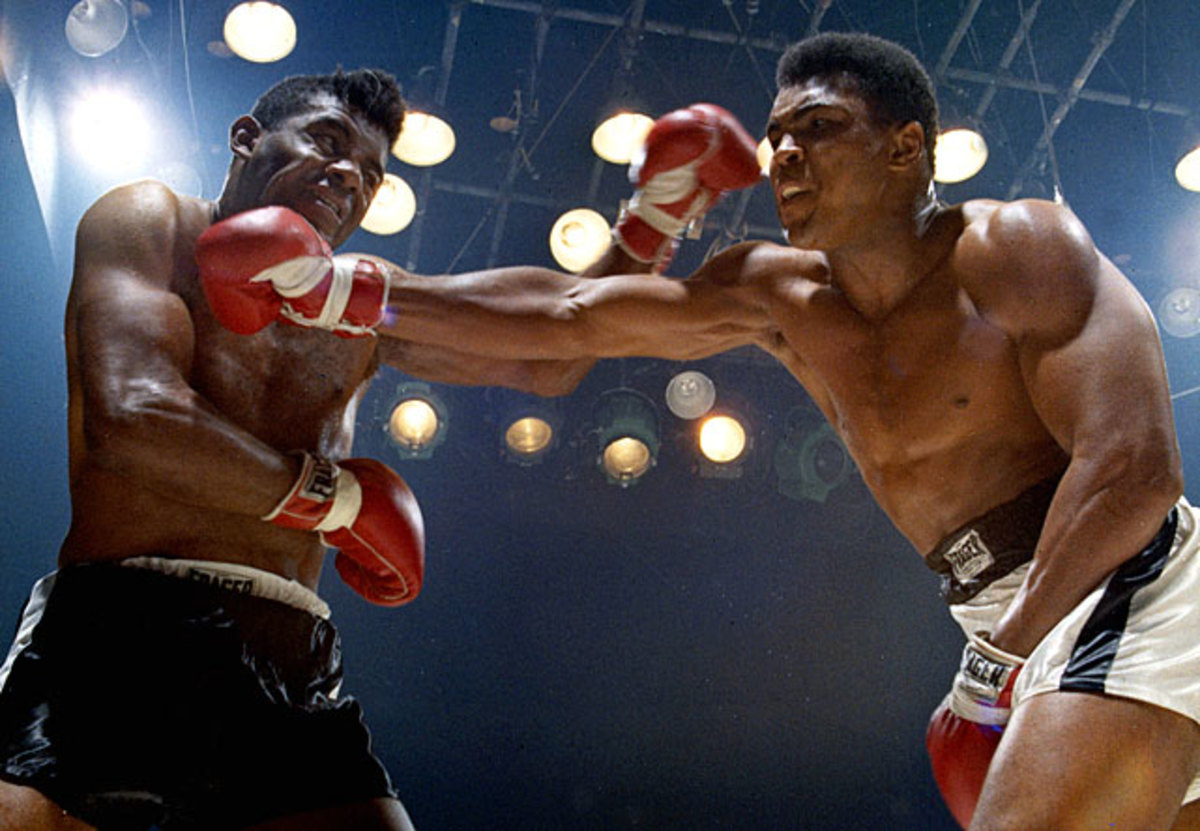
In a battle of former Olympic gold medalists in November 1965, Ali kept Floyd Patterson from becoming the first boxer to win the world heavyweight title three times by winning via a 12th round TKO.
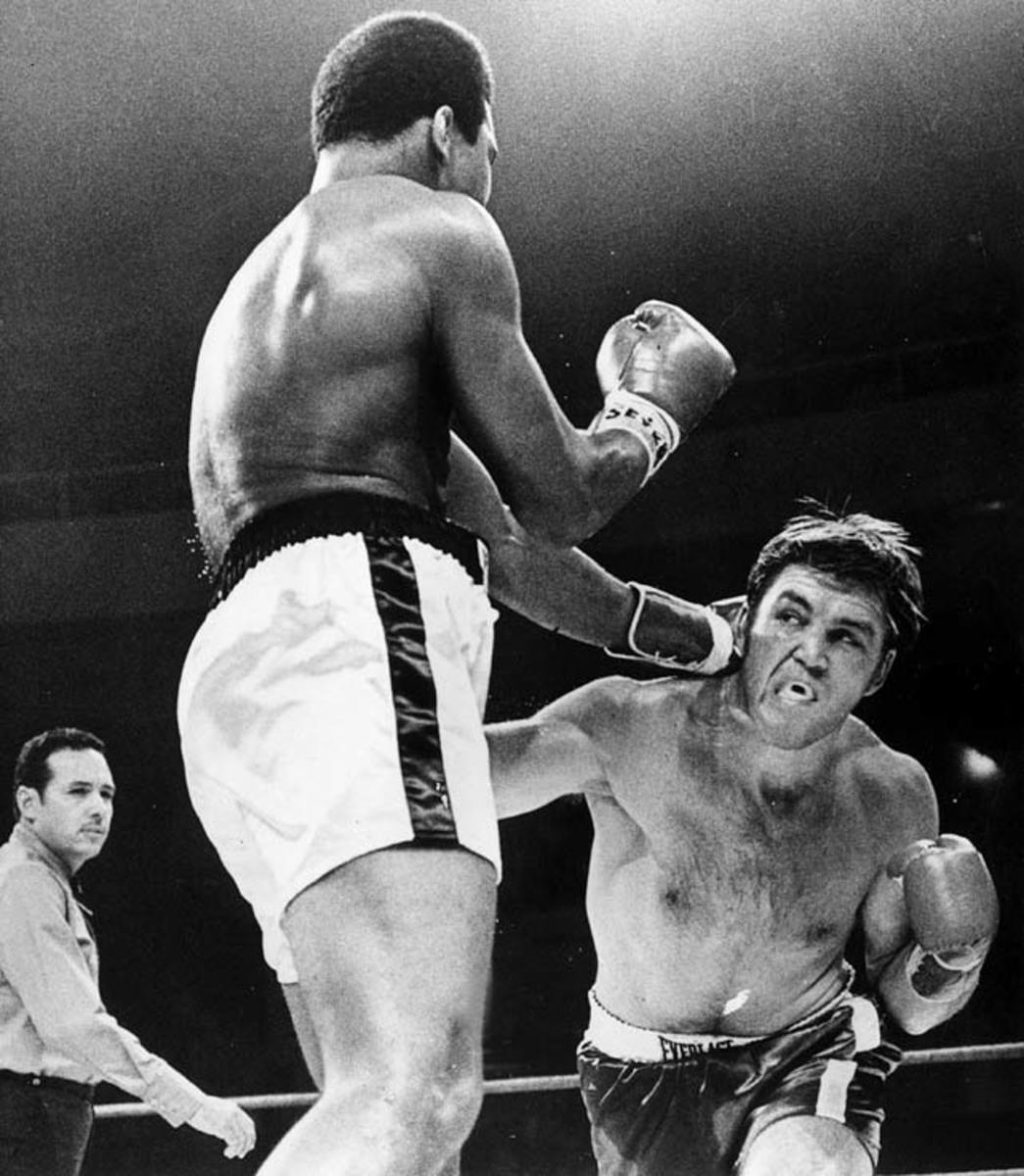
Three years after being found guilty of draft evasion and being stripped of his title and license to box, Ali took advantage of a loophole in Georgia (the state had no boxing commission) and defeated Jerry Quarry in three rounds of a 1970 bout.
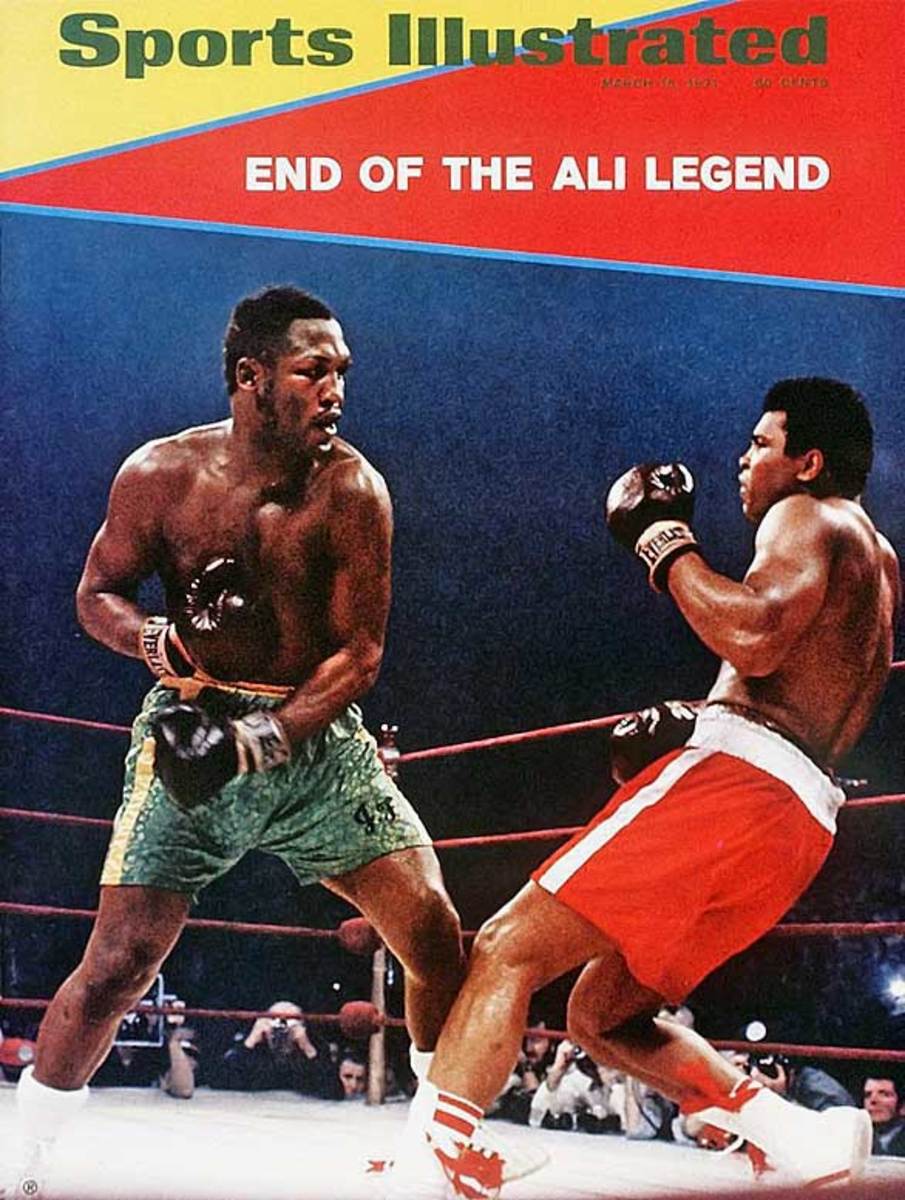
In his first bout with Joe Frazier, Ali lost a 15-round decision at Madison Square Garden in March 1971.
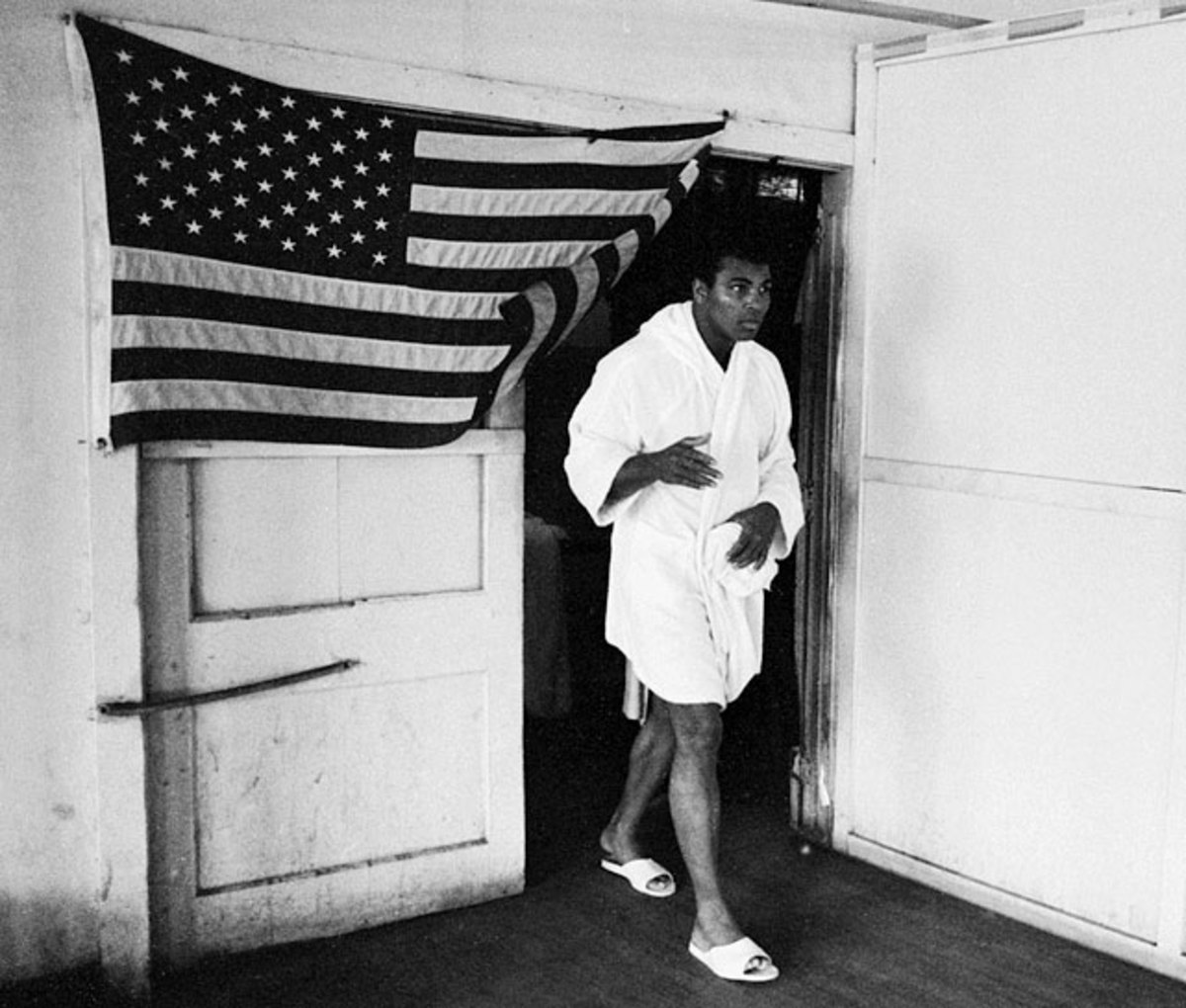
Three months after losing to Frazier, Ali won the biggest fight of his career as the Supreme Court reversed his 1967 draft-evasion conviction.
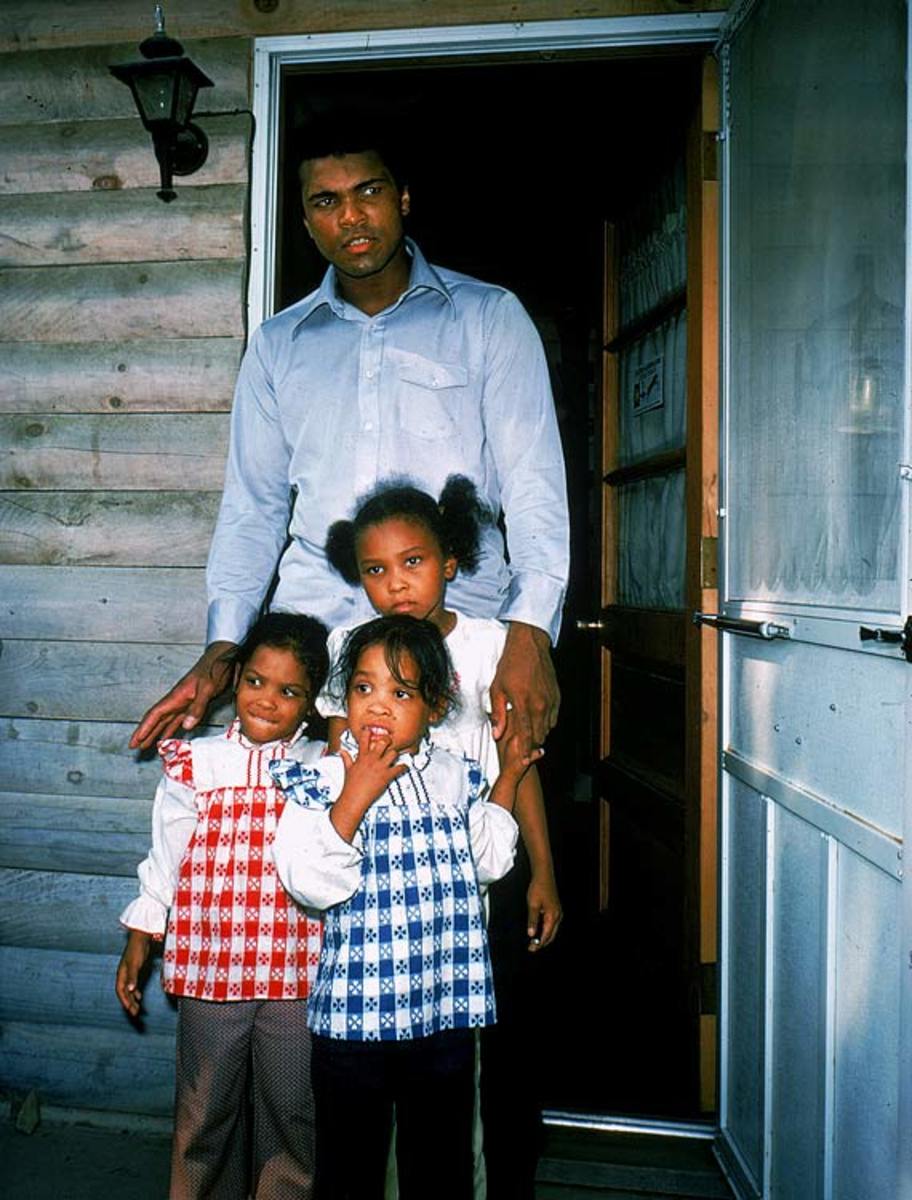
Ali has nine children (seven girls and two boys): Maryum, Rasheeda, Jamillah, Hana, Laila, Khaliah, Miya, Muhammad Jr. and Asaad.
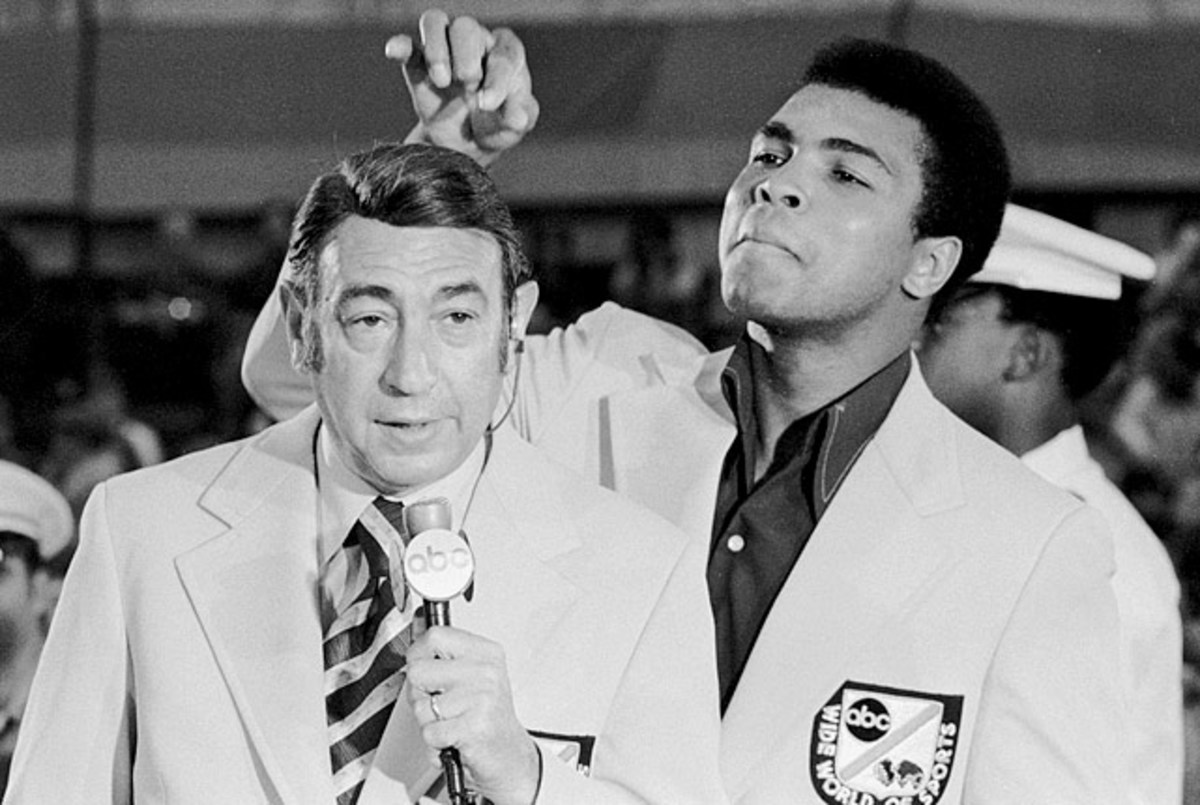
Ali and Howard Cosell covered the 1972 Olympic boxing trials together, but their history dates back to the entertaining commentary and interviews Cosell had with the heavyweight champ.
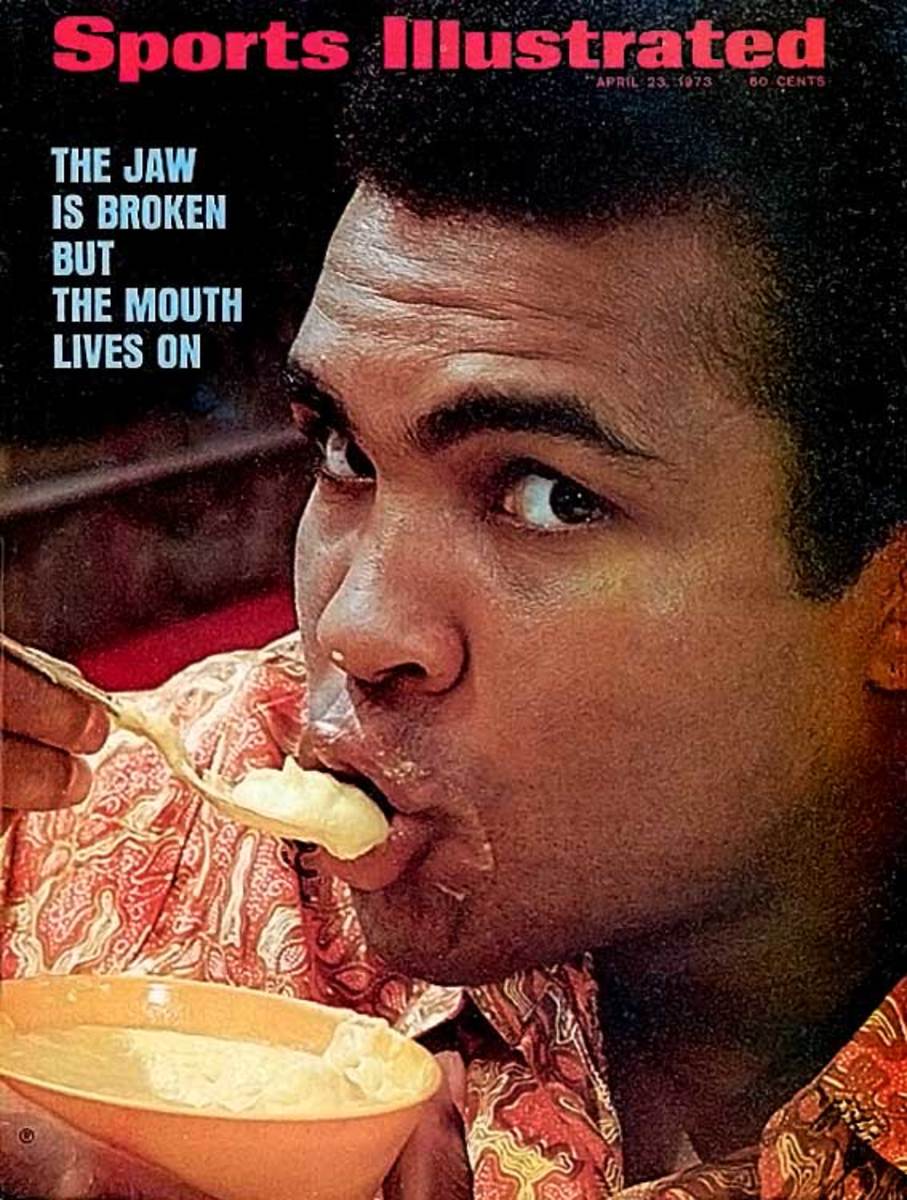
Known early on as the Louisville Lip, Ali drew attention for his poetic quips, such as "I am the greatest," "I'm young, I'm pretty, I'm fast, and no one can beat me" and "Float like a butterfly, sting like a bee."
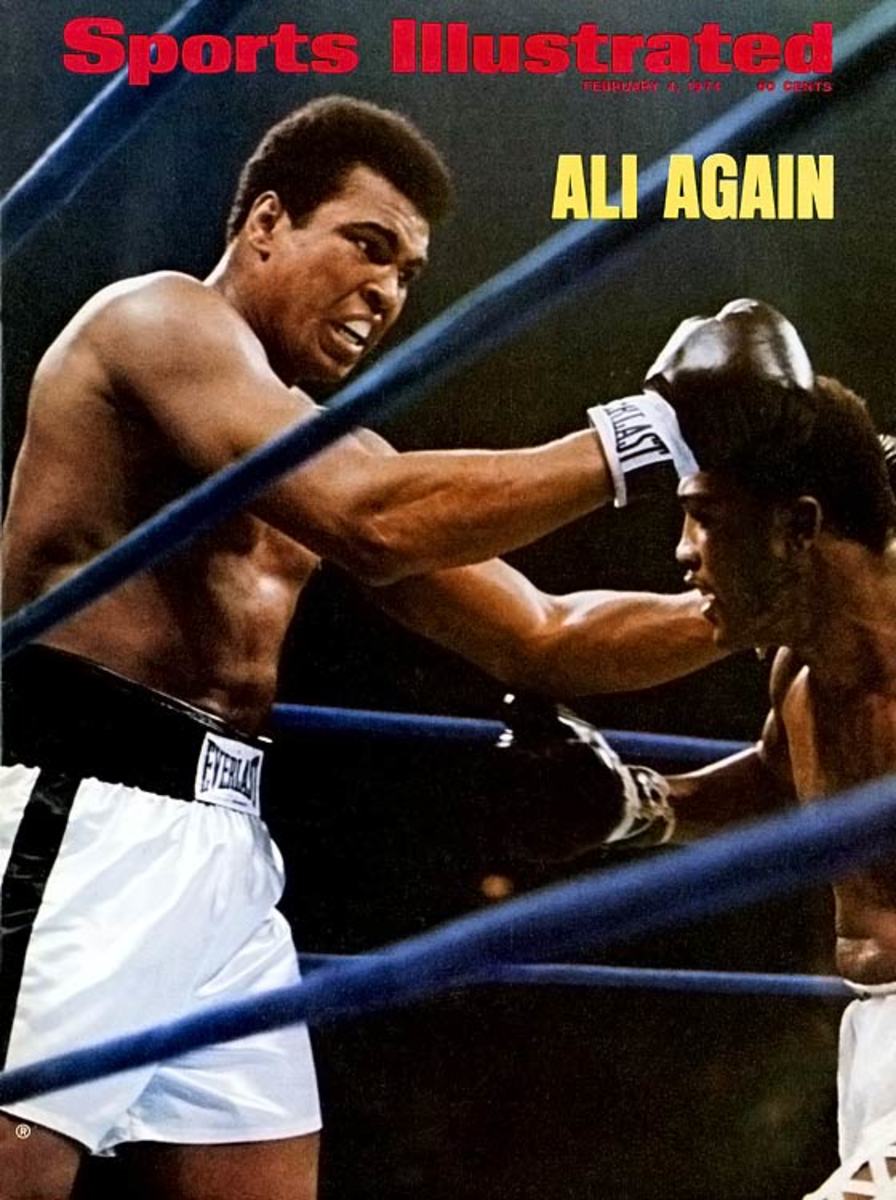
Ali avenged his earlier loss to Frazier by outpointing him 116-113, 116-112 and 115-114 in a 12-rounder at Madison Square Garden in January 1974.
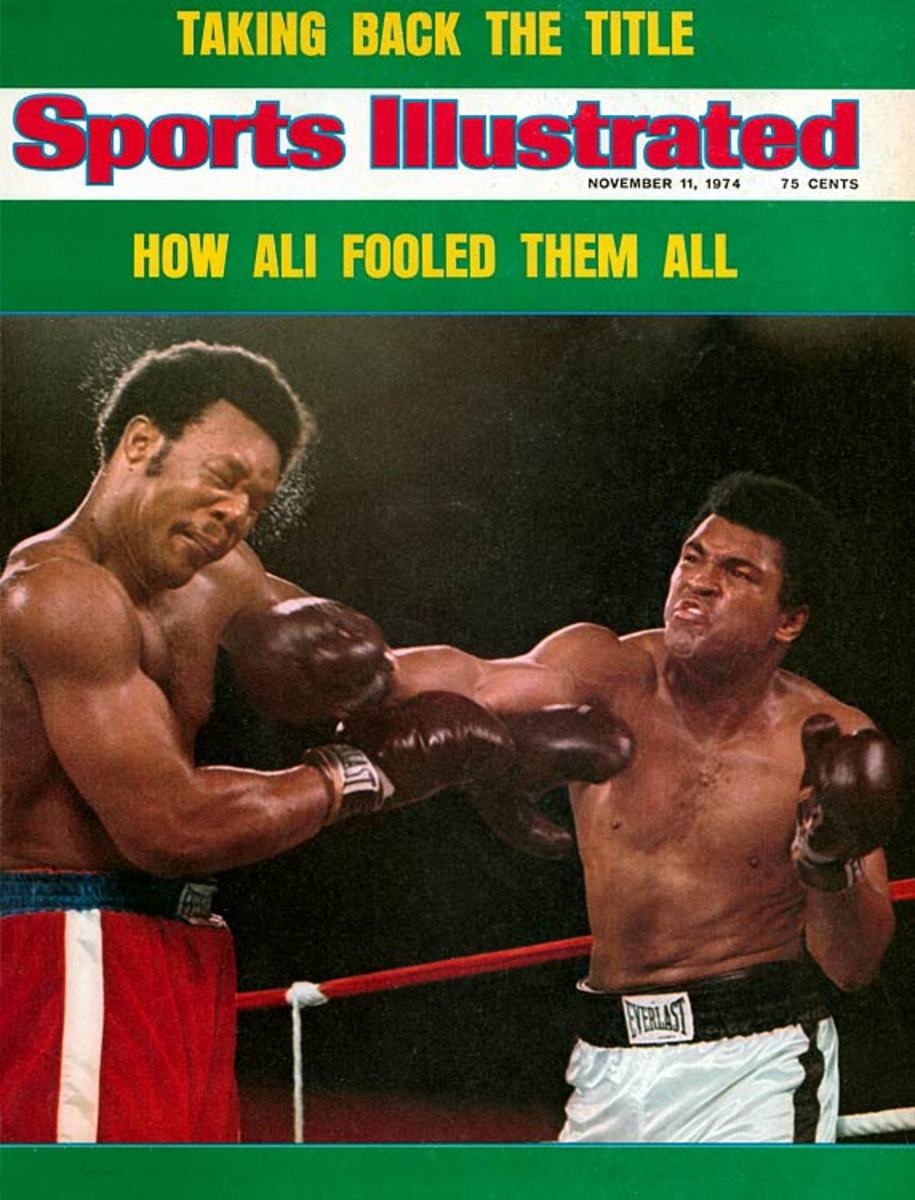
Ali will forever be remembered for the "Rumble in the Jungle," his epic 1974 fight in Zaire with George Foreman, against whom he unveiled the rope-a-dope and won via an eighth-round knockout.
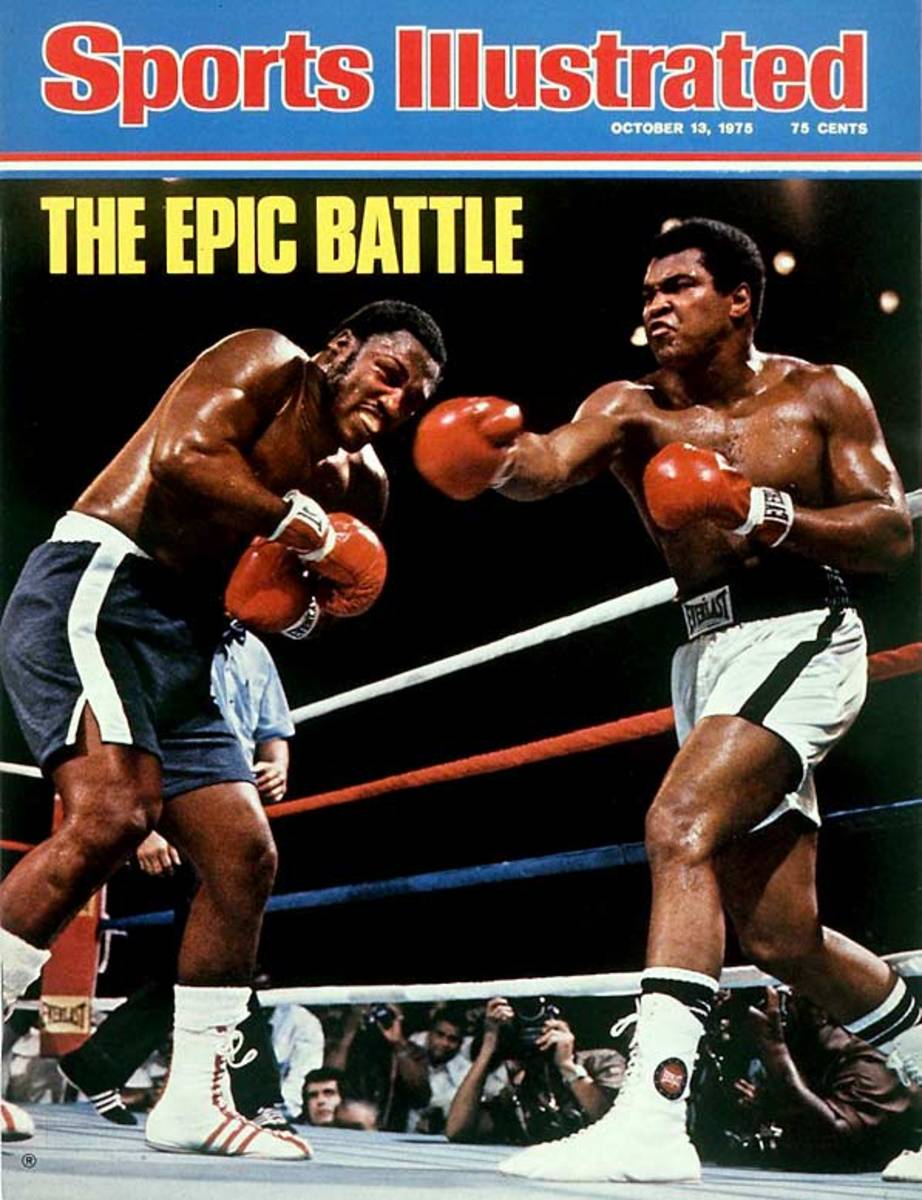
In one of the famous fights in history, Ali pounded Joe Frazier in the "Thrilla in Manilla" and won by TKO when Smokin' Joe couldn't continue after the 14th round.
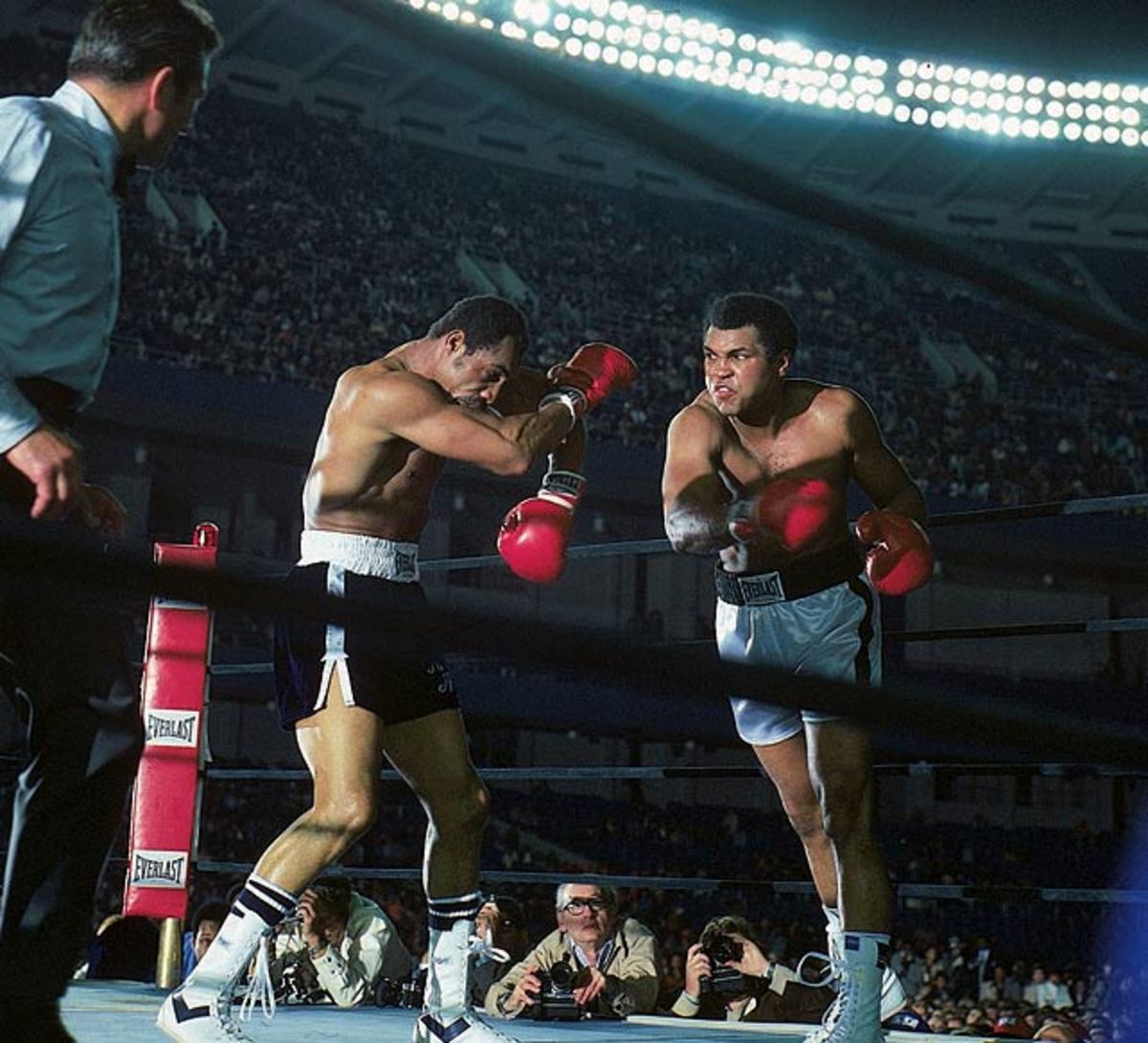
Ali and Ken Norton fought twice in 1973, splitting the fights. In the '76 rubber match at Yankee Stadium, Ali slugged his way to a unanimous decision in 15 rounds. Norton's own coaches believed their fighter had a comfortable lead heading into the 15th and advised Norton to stay away from Ali, which he did, possibly giving the fight away. After the bout, even Ali admitted he thought he had been beaten.
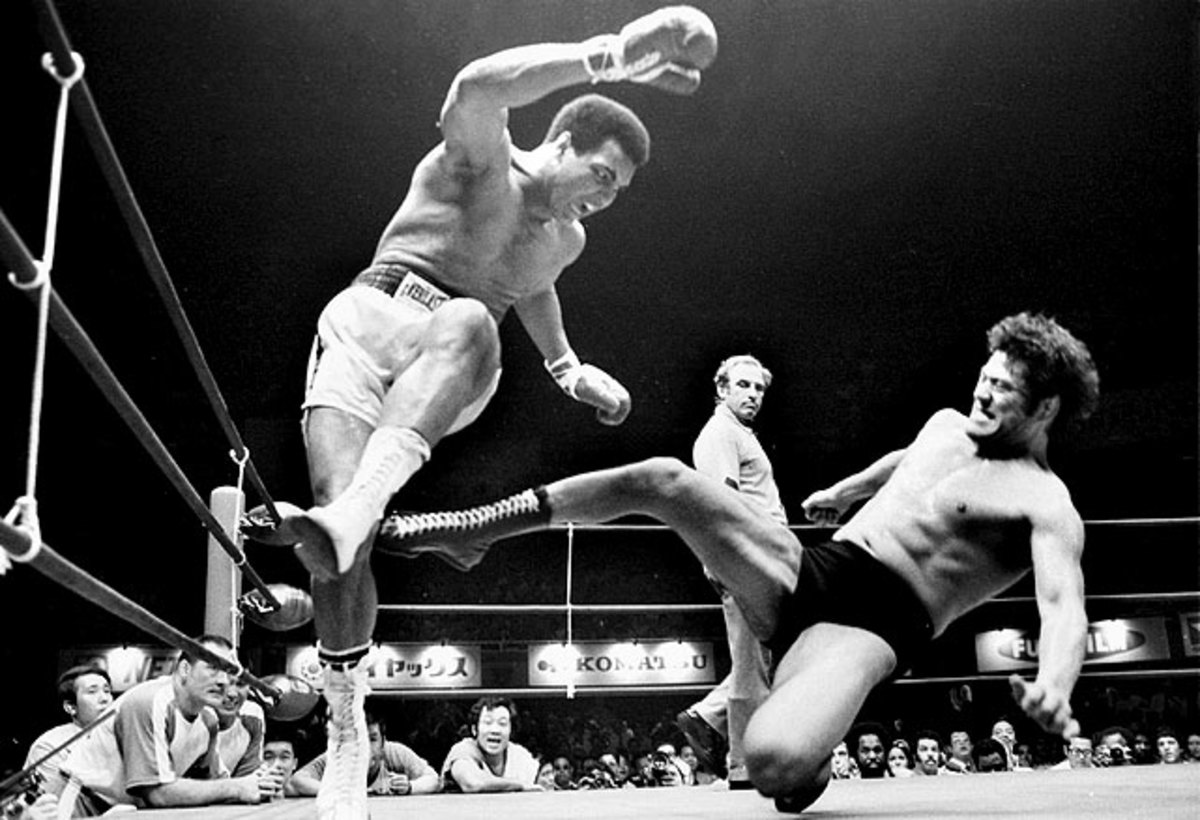
One of the few low points in Ali's career was his exhibition fight with Japanese wrestler Antonio Inoki in Tokyo in June 1976. Ali spent most of the 15 rounds taunting and sticking his tongue out at his opponent, while Inoki landed kick after kick at Ali's legs. The bout was declared a draw. Ali reportedly pocketed $2 million for the so-called "Martial Arts Championship."
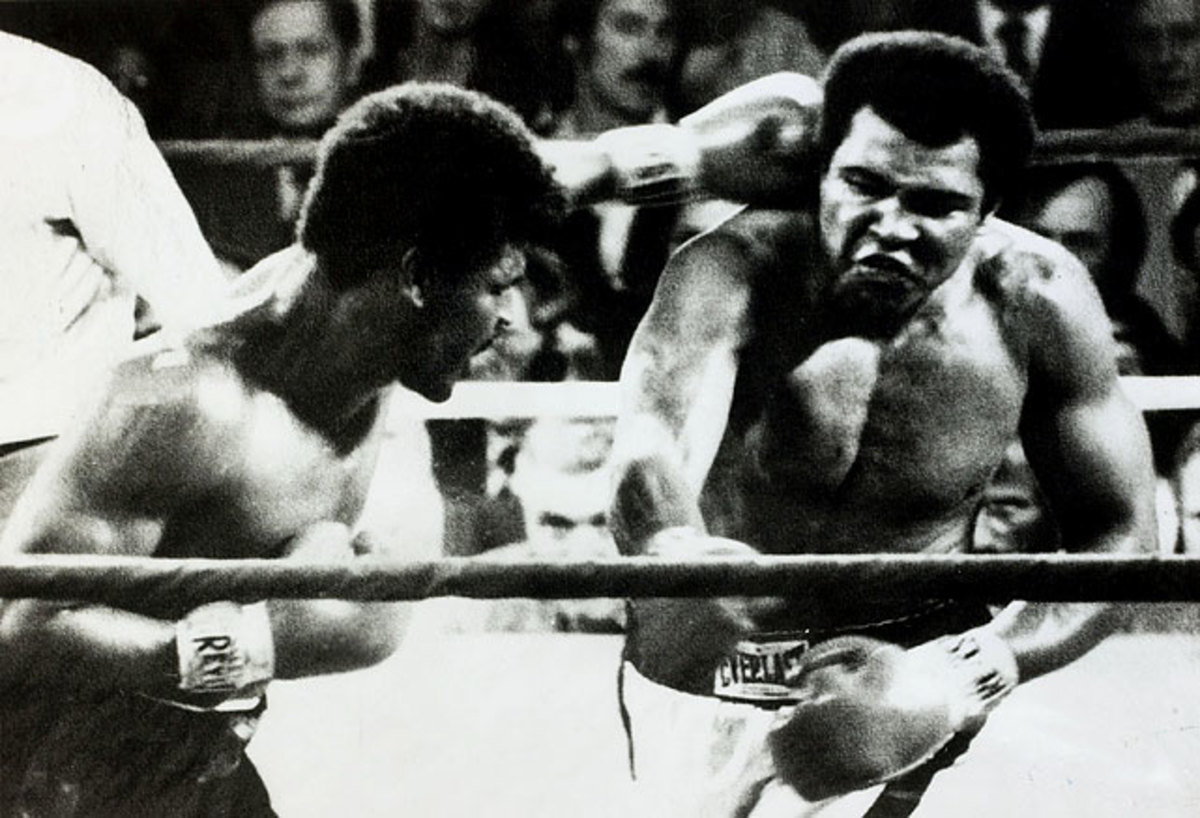
A young Leon Spinks, coming off a gold-medal performance at the 1976 Montreal Olympics, stunned an ill-prepared Ali in their '78 bout. "Of all the fights I lost in boxing, losing to Spinks hurt the most," Ali would later say.
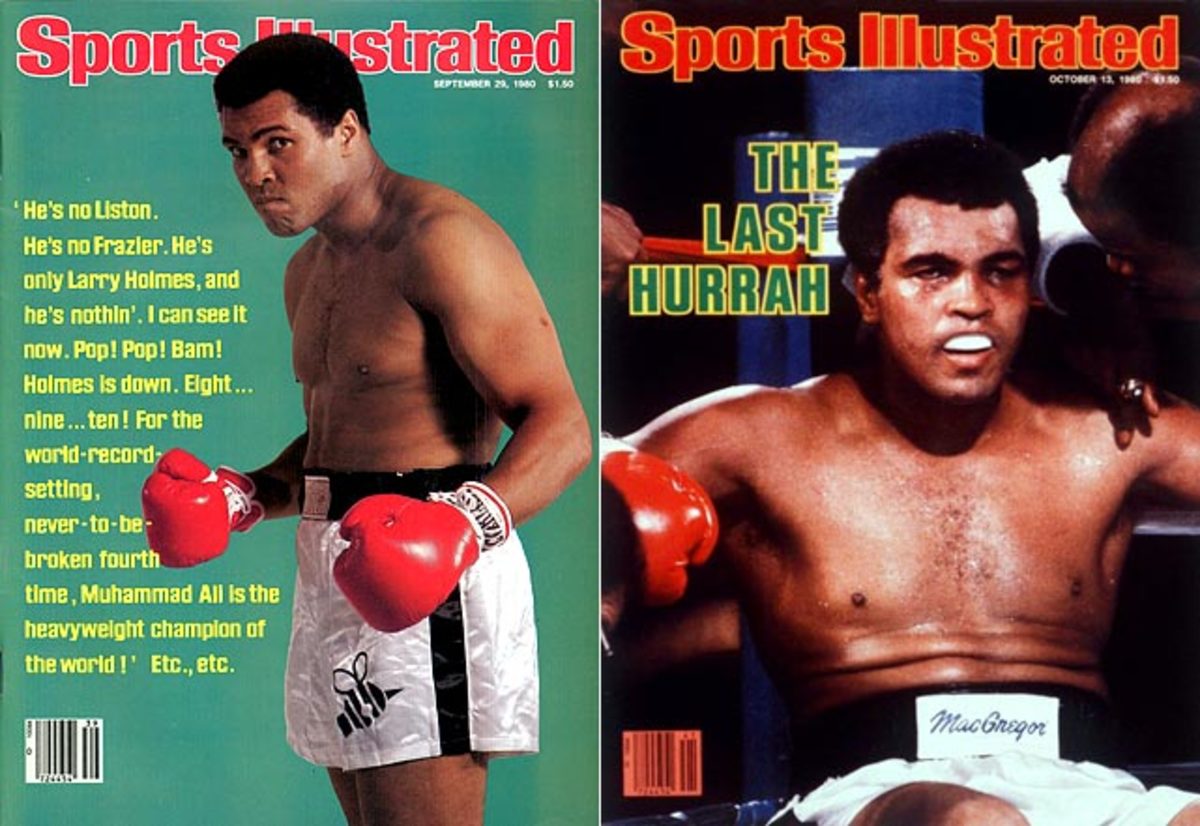
After a brief retirement, Ali fought again in 1980 at age 38 against Larry Holmes, a bout dubbed "The Last Hurrah." Ali was his usual taunting self before the match, even though he was two years removed from his last fight and was noticeably overweight.
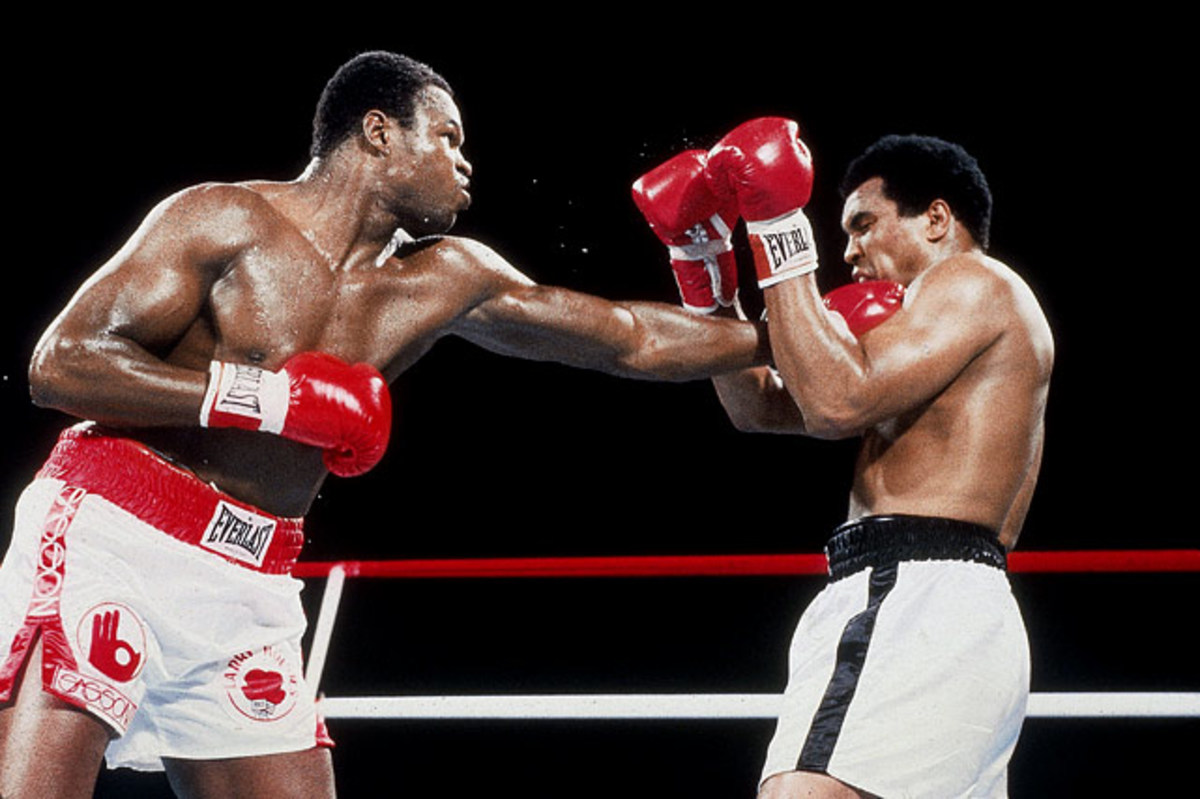
The former champ was far from competitive against the in-his-prime Holmes, who was declared the winner by TKO in the 11th round after trainer Angelo Dundee refused to let Ali continue to get pummeled. Holmes had this to say about Ali, his former mentor: "After the fight was all over, I went to his room and he was lying in the bed, getting massaged. I said, `I love you, man.' He says, `If you love me, why you beat me up like that?'"
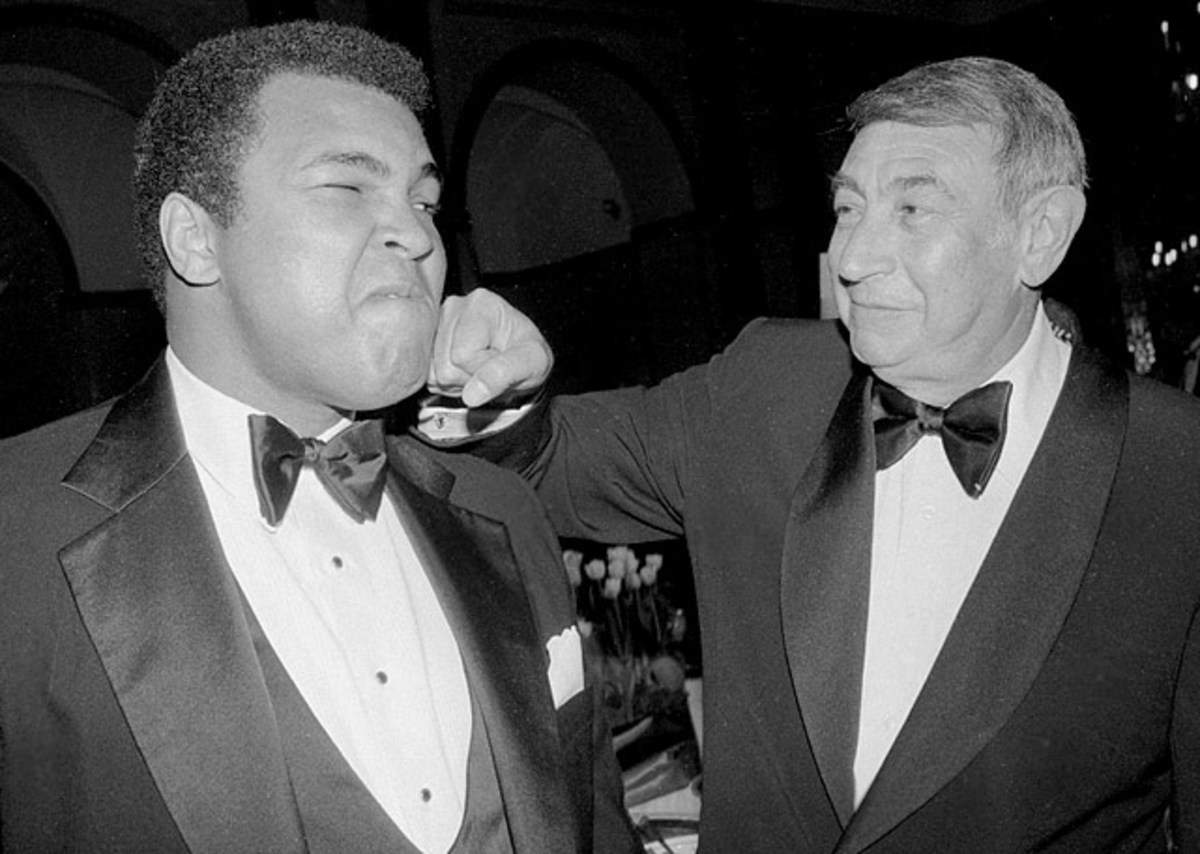
Longtime friend Cosell lays one on Ali's chin during a dinner marking the 20th anniversary of ABC's Wide World of Sports in 1981. Cosell passed away at age 75 in 1995.
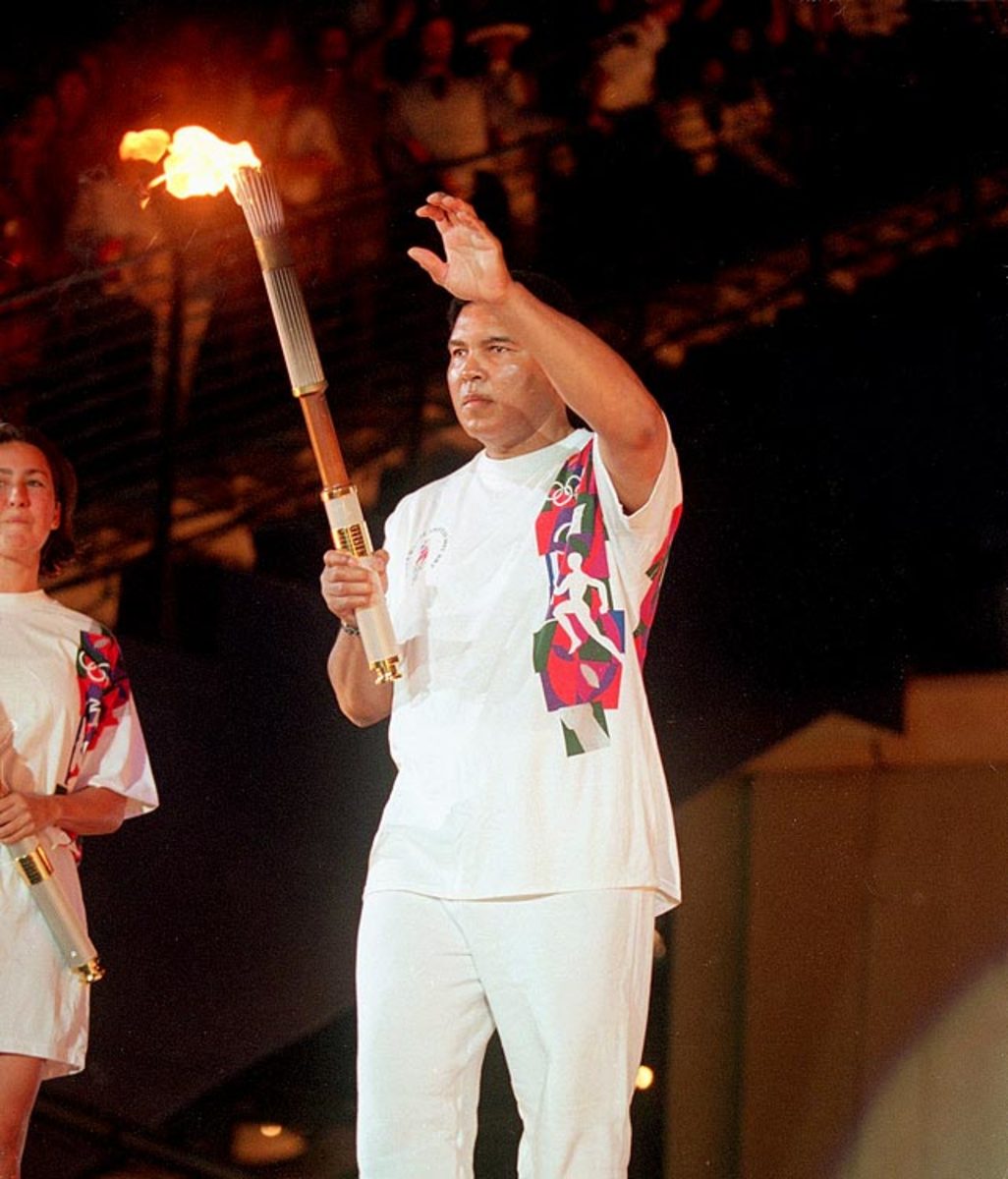
Perhaps Ali's most famous moment since his retirement was when he lit the Olympic flame at the 1996 Summer Games in Atlanta. He was later presented with an honorary gold medal as a "replacement" for the one he supposedly threw into the Ohio River in 1960 after being refused entry into a restaurant based on his race.
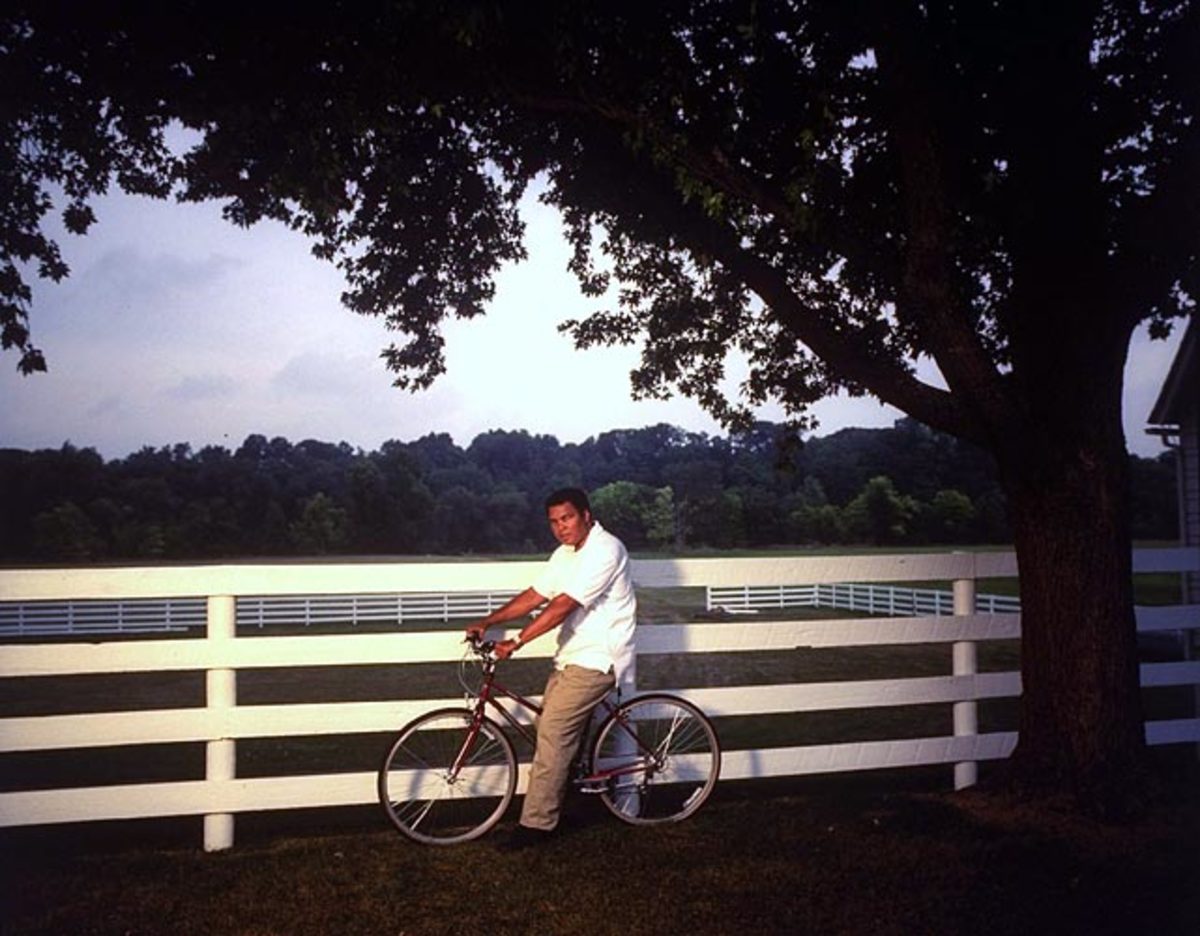
A few months after marrying his fourth wife, Lonnie, in 1986, Ali moved to Berrien Springs, Mich. (seen here in 1996).
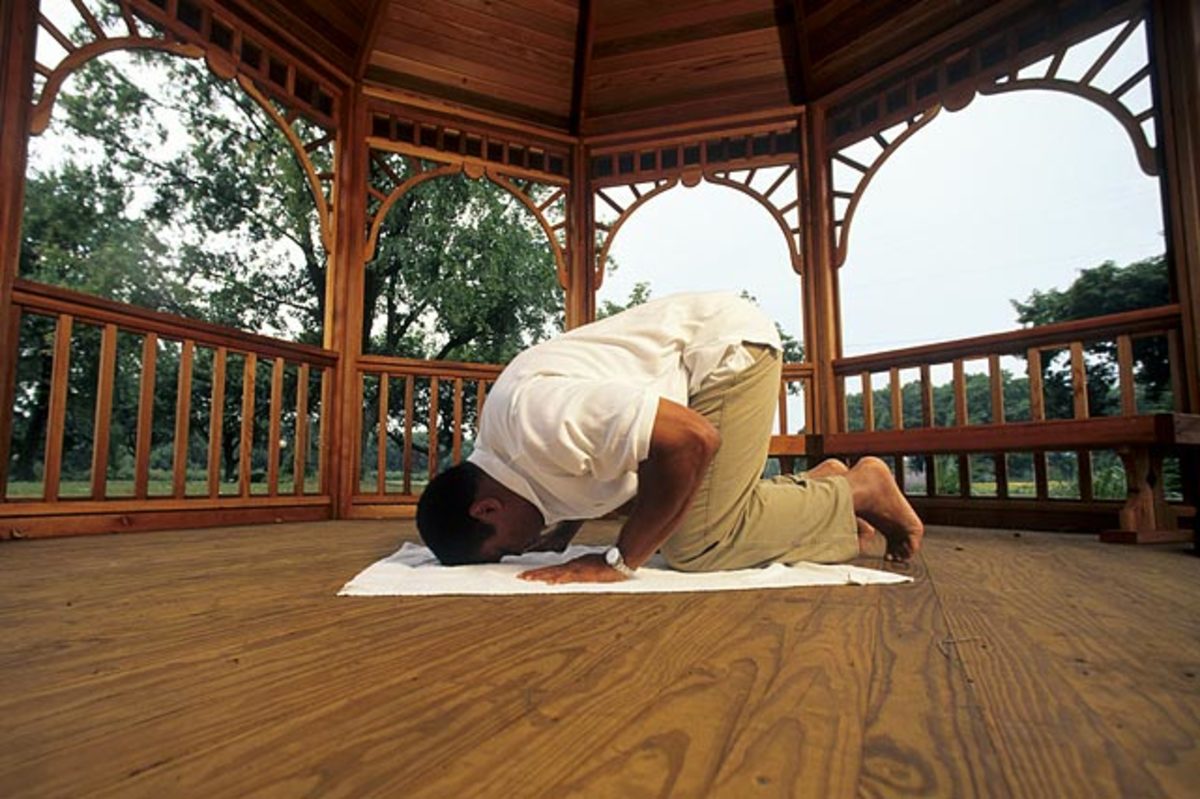
His conversion to Islam in 1964 made huge waves, but in this 1996 photo, Ali enjoys a quiet moment of prayer in his gazebo. "Religions all have different names, but they all contain the same truths," he once said.
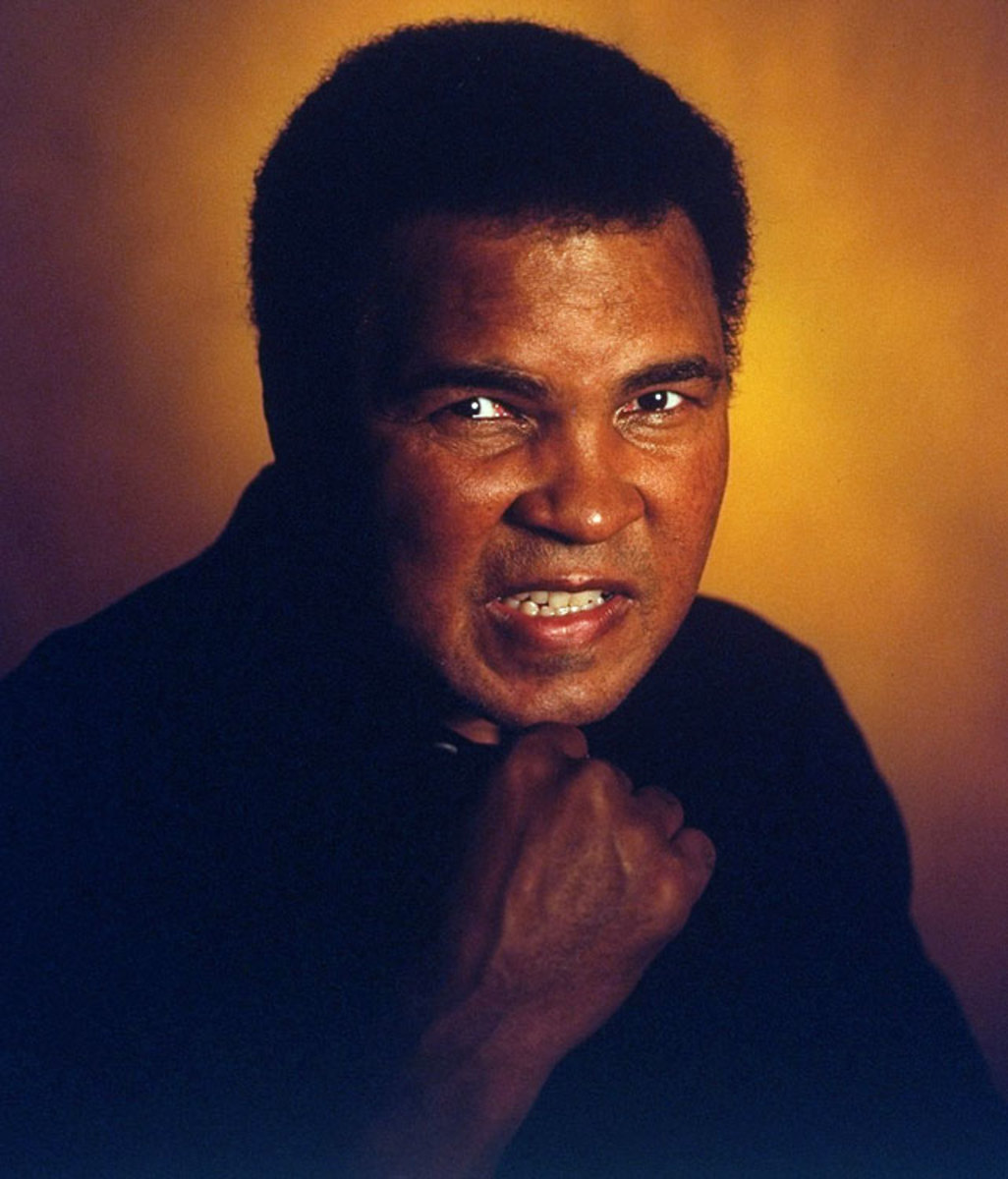
In recent years, Parkinson's syndrome has taken away most of Ali's motor capabilities, but he's still quick to mug for the camera. "People think I'm sufferin'," he says. "People thought I was suffering when they wouldn't let me box during the Vietnam War too. I want my health back, but I ain't sufferin'."
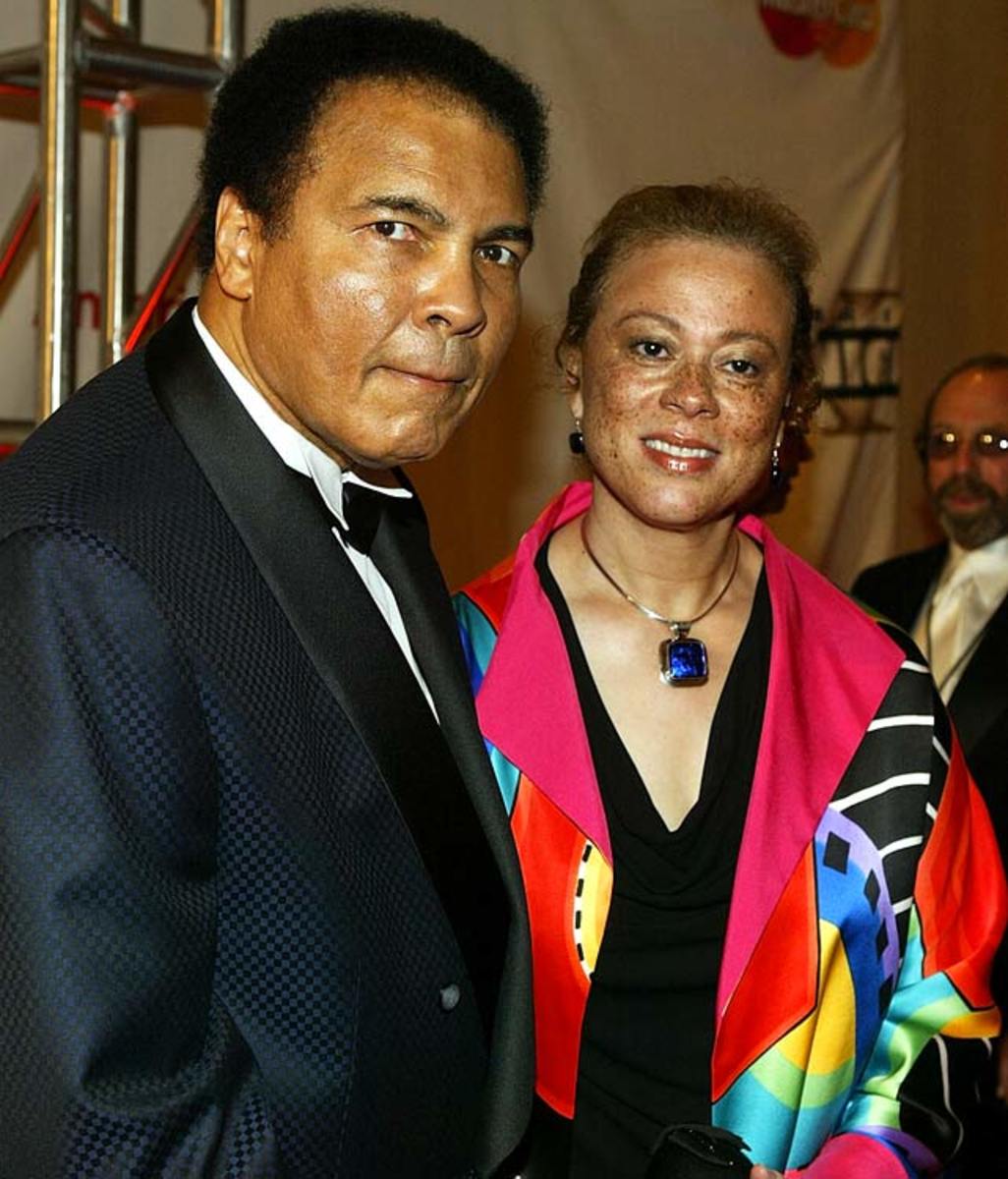
Ali (pictured here in 2004 with Lonnie at a charity event) still makes plenty of appearances to raise money for the Muhammad Ali Parkinson Research Center at the Barrow Neurological Institute in Phoenix.
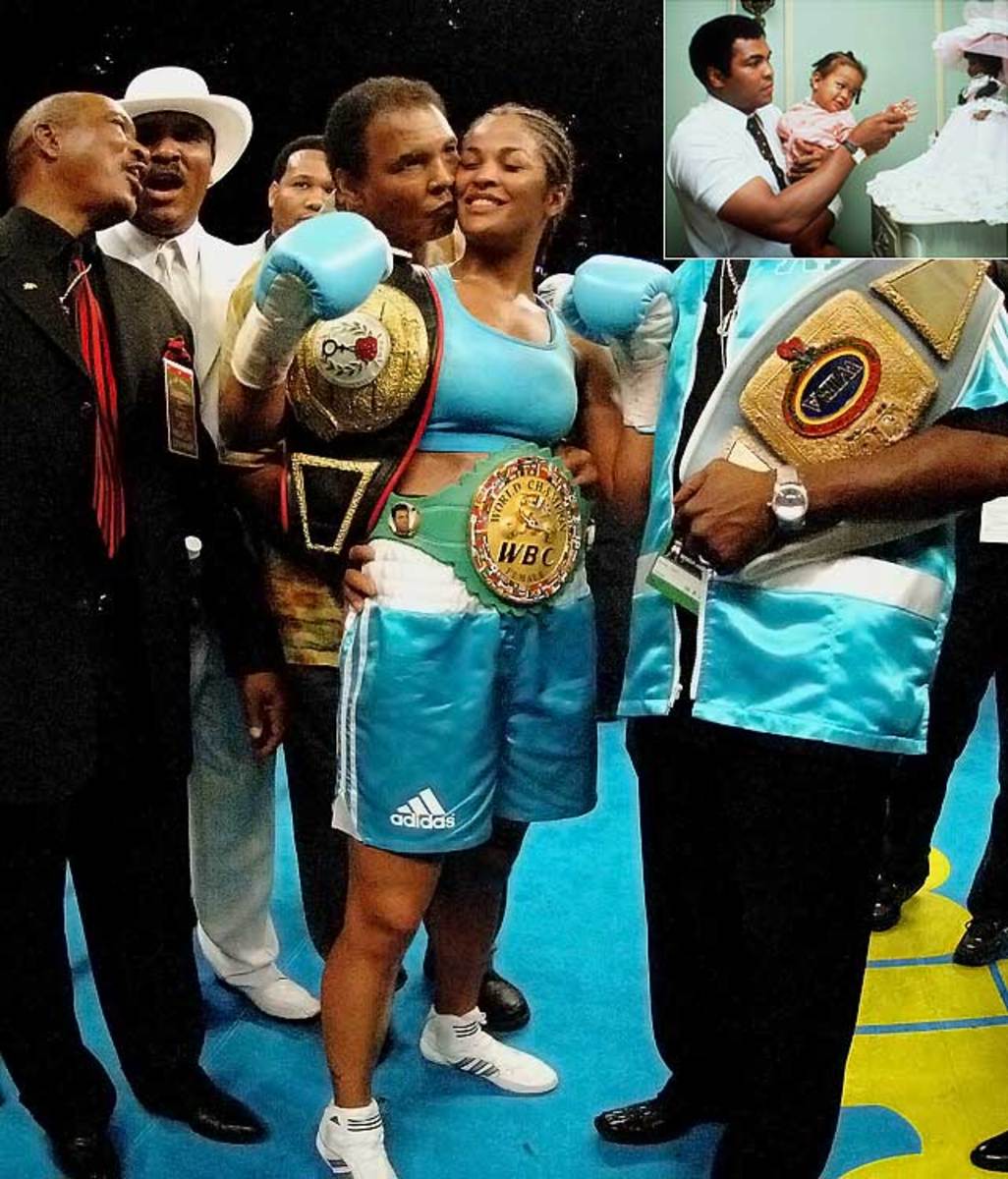
The Champ poses with daughter Laila in June 2005. Laila decided to follow in her father's footsteps in 1999.
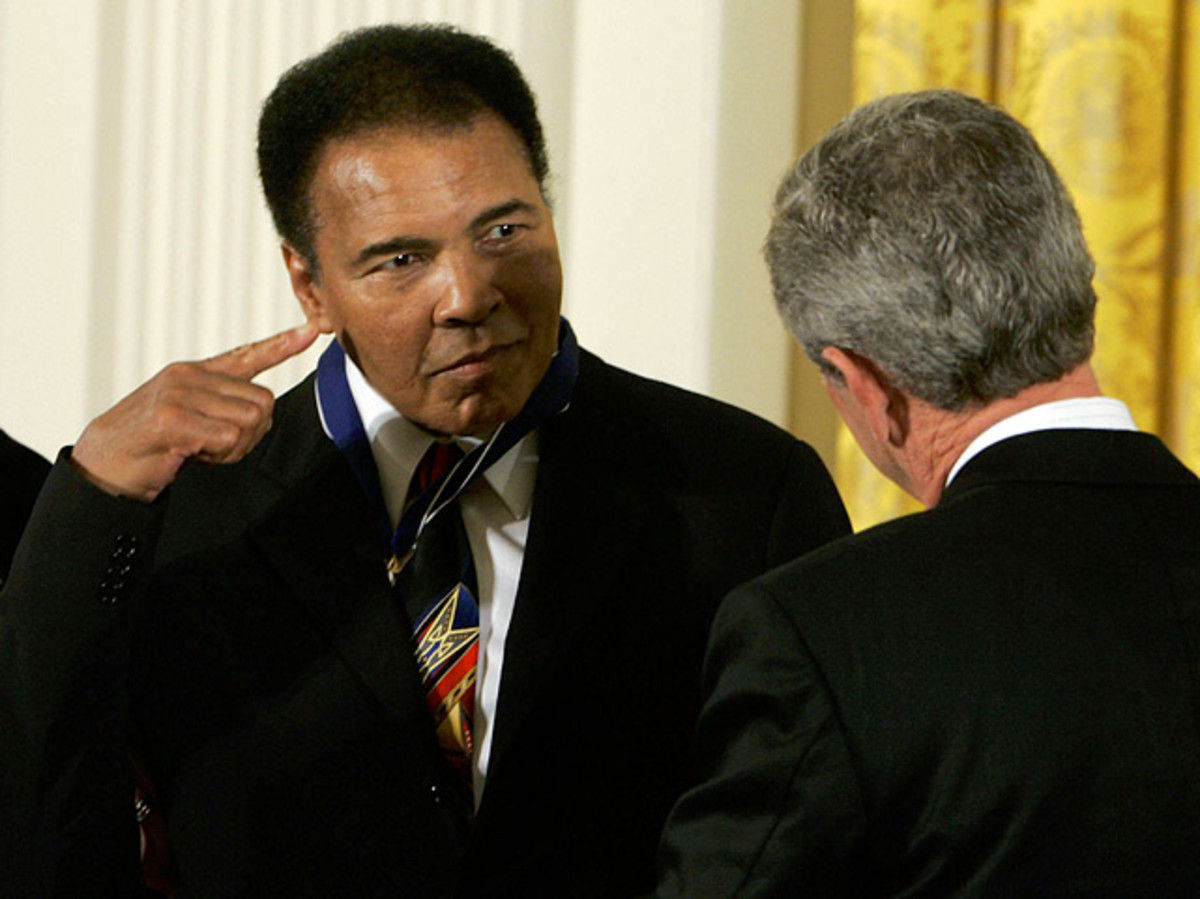
In November 2005, Ali received the Presidential Medal of Freedom from President Bush. The award is the highest civilian honor in the U.S., which recognizes individuals who have made "an especially meritorious contribution to the security or national interests of the United States, or to world peace, or to cultural or other significant public or private endeavors."
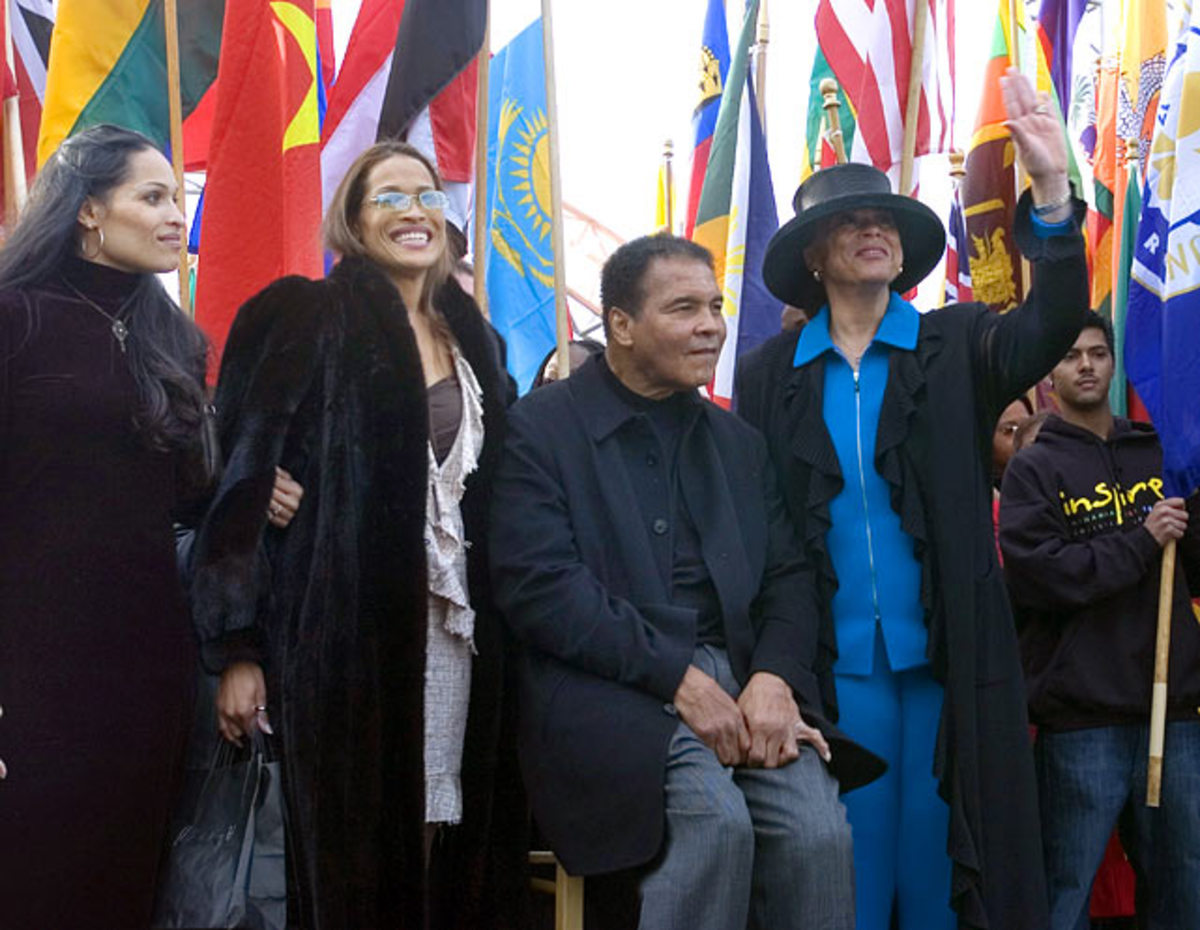
Ali was on hand in November 2005 for the official opening of the $80 million Muhammad Ali Center, a six-story museum that serves as a tribute to Ali's career, his ideals and his legacy. The facility is located in Ali's hometown of Louisville, Ky.
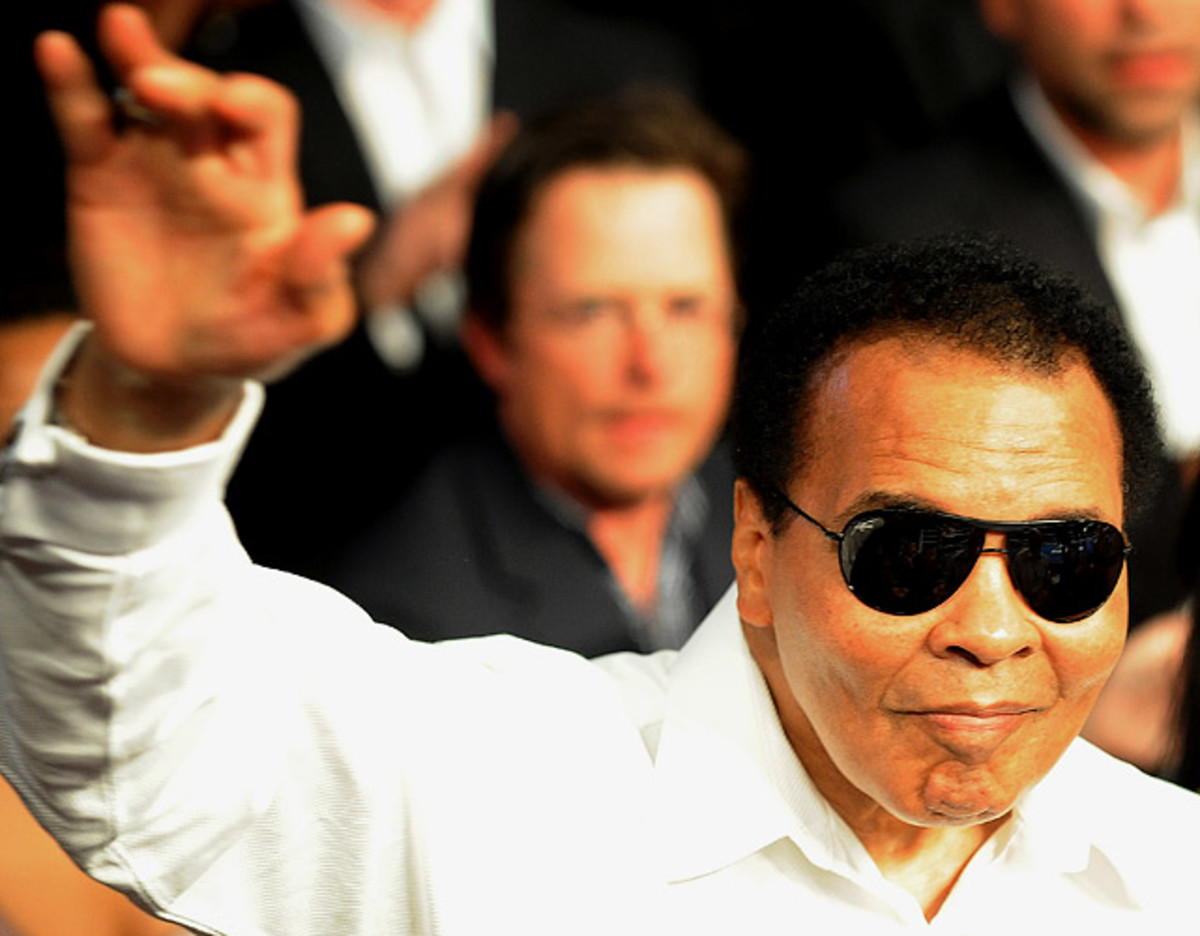
Muhammad Ali salutes the crowd before the start of the Floyd Mayweather Jr. and Shane Mosley welterweight fight at the MGM Grand Garden Arena on May 1, 2010 in Las Vegas.
